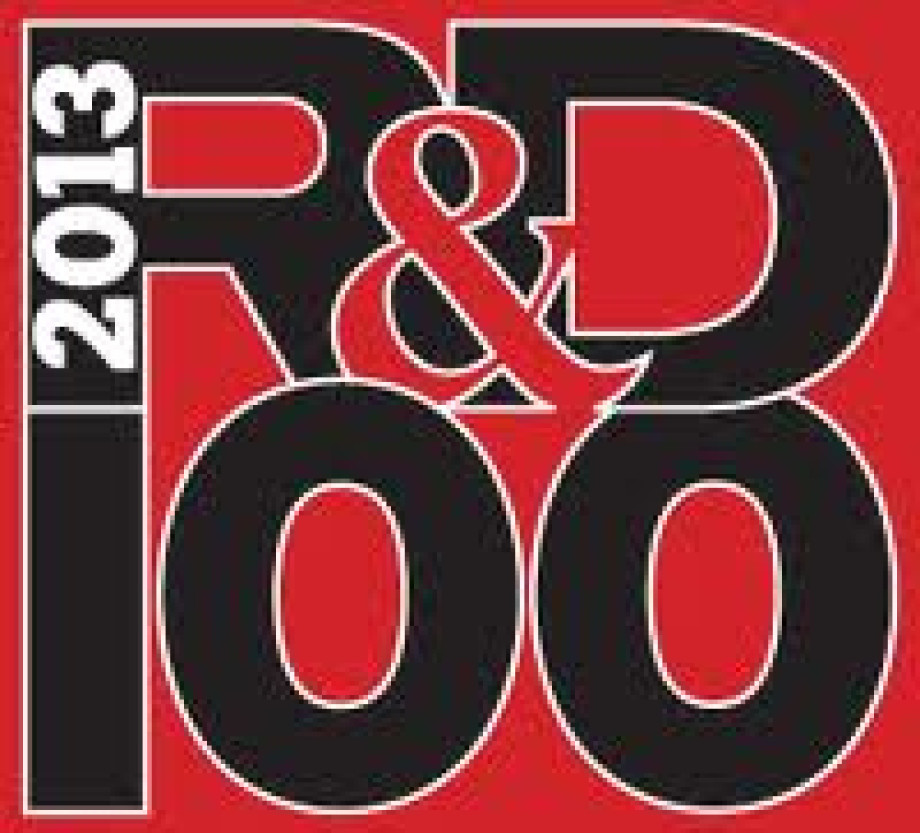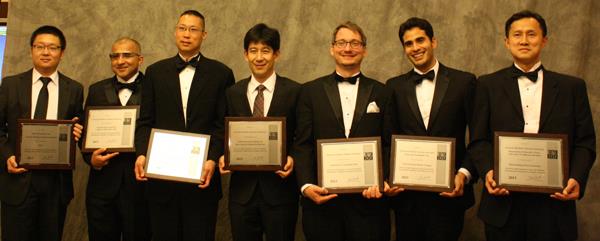ESnet’s On-Demand Bandwidth Reservation Service Wins R&D 100 Award
OSCARS Honored with “Oscar of Innovation”
Contact: Jon Bashor, 510-486-5849, jbashor@lbl.gov
Widely recognized as a mark of excellence, the R&D 100 Awards are the only industry-wide competition rewarding the practical applications of science. Among the 2013 winners of this prestigious award is the latest version of OSCARS, the On-demand Secure Circuits and Reservation System, the development of which was led by ESnet. OSCARS is a software service that creates dedicated bandwidth channels for scientists who need to move massive, time-critical data sets around the world.
Such data sets are a hallmark of modern science, which is increasingly collaborative and international in nature. Data intensive science requires high-bandwidth networks interconnecting globally distributed instruments, facilities and collaborators – allowing them to function as if they are one system in one location. ESnet engineers developed OSCARS to ensure networks can meet the time-critical needs of these experiments.
What makes OSCARS so useful is that it can automatically create end-to-end circuits, crossing multiple network domains. Before OSCARS, this was a time consuming process–in 2010, for example, ESnet engineers needed 10 hours of phone calls and about 100 emails over three months to do what one person can do in five minutes using OSCARS. The automation of this complex process—through a technique known as Software Defined Networking—is accelerating scientific discovery in high-energy physics and many other disciplines.
“It’s wonderful to see the innovation that’s gone into the latest version of OSCARS recognized with an R&D100 Award,” said ESnet Director Greg Bell. “This early example of Software Defined Networking is yet another example of research networks taking the lead. But OSCARS is not just an ESnet achievement. We’re grateful for collaborations with many partners over the last decade, as the project matured from a bold idea into a production software suite.”
The original idea for OSCARS came from former ESnet Director Bill Johnston, who understood a decade ago that data intensive science would require new networking tools and techniques. ESnet’s Chin Guok has served as lead architect for the life of the project, and initial funding came from the Advanced Scientific Computing Research (ASCR) program in the Department of Energy’s Office of Science.
“I wish we could name and recognize all the organizations that contributed to the success of OSCARS,” added Bell. “Internet2 has been a critical intellectual partner, and for this version of OSCARS they also did testing, quality assurance and packaging – along with our friends at Indiana University. Over the years there were important contributions from engineers at the MAX GigaPoP, USC’s Information Sciences Institute, Europe’s DANTE/GEANT network and Canada’s CANARIE, as well as others.”
Development of OSCARS version 0.6 was led by Guok, with significant contributions from Evangelos Chaniotakis, Andrew Lake, Eric Pouyoul and Mary Thompson, all of ESnet. ESnet received the R&D100 award for OSCARS version 0.6, which was finalized and released in June 2012. OSCARS is currently used by more than 40 networks, including wide-area backbones, regional networks, exchange points, local-area networks and testbeds. Letters of support for the OSCARS submission for consideration came from researchers in the U.S., Korea and Brazil, as well as industry.
Known as “the Oscars of Innovation,” the 2013 R&D 100 awards will be presented at a special ceremony in Orlando later this year.



